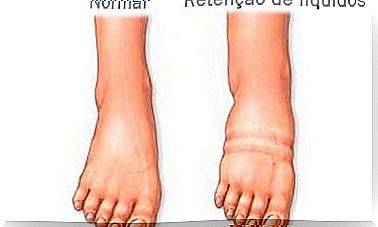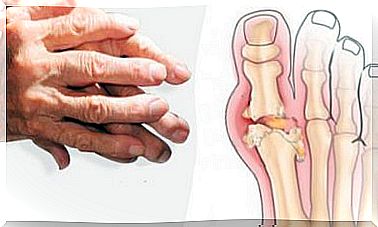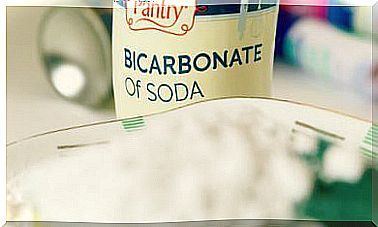Bowel Polyps: Symptoms You Should Be Aware Of
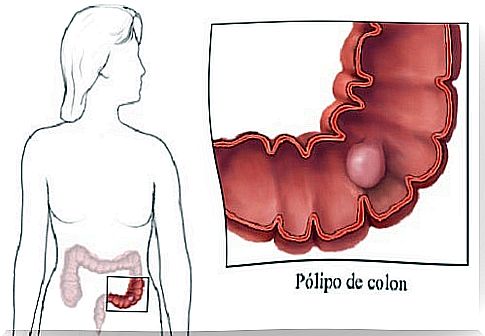
You may have heard of intestinal polyps at some point, and it is even possible that you or someone in your social circle suffers or has already suffered from them.
Your most basic question will no doubt be: are they serious? Well, polyps in the intestine are usually benign.
However, we cannot ignore them for that reason, as in the long term they can evolve and acquire carcinogenic characteristics. Therefore, always opt for a colonoscopy to eliminate them.
But… what symptoms do they have? How can we perceive its presence? Today we will address this topic. Do you follow us?
It may be that just the word causes fright. If, at any time, your doctor diagnoses you with “bowel polyps”, you are likely to be baffled, wondering what it is.
Are they big? Are they a type of infection? An intestinal polyp is actually quite common: in short, it is an abnormal growth within the walls of the large intestine itself.
Polyps can be round, as in the top image, or flatter. As is well known, this region of our body is the part that is responsible for channeling and redirecting all the fecal material that will eventually be expelled through the rectum.
Therefore, it is a very vulnerable region to bacteria and inflammation, for example. And it is not strange that, sometimes, this problem appears, which is usually quite common.
That way, there is no need to be alarmed or immediately think of the worst.
As we talked about at the beginning, most polyps are benign. However, they require an intervention to eliminate them from the body: a colonoscopy.
Also be aware of an aspect that doctors often comment: polyps with a flatter shape are more likely to be cancerous.
But, once again, we emphasize that you should not be alarmed as there is treatment and they are almost always benign.
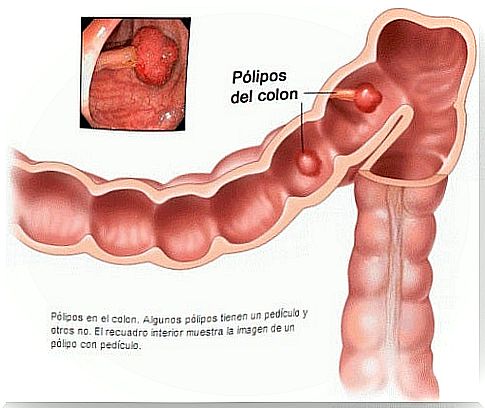
There are people who are more predisposed than others. It is important to make clear that the items we will show here are merely indicative, and never determinative.
On occasion, bowel polyps can be diagnosed even if we don’t have any of these backgrounds, but in general, we should keep the following factors in mind:
- Being over 50 years old;
- Being overweight;
- Be a smoker;
- Having a family member who has suffered from bowel cancer;
- Drinking alcohol;
- Have a very sedentary life and follow an incorrect diet rich in fat.

Most bowel polyps are usually asymptomatic, especially early on when they are forming. They do not cause pain and, as they are small in the beginning, they do not cause problems for the normal functioning of the large intestine.
However, as they get bigger, they can get closer to the fecal material, and when they touch it, they can bleed. That’s where we see the first clues. So take note of the following symptoms that you should keep in mind:
- Very dark stools;
- Perceive, when cleaning, the presence of blood in the rectum;
- Feeling burning or pain when evacuating;
- Feel a certain internal burning when eating something spicy or very spicy.
To conclude, we emphasize the fact that many people discover polyps by chance, when they undergo other types of secondary exams.
Therefore, when your doctor has to do the study to check their frequency and number, be aware that you will have to have a colonoscopy.
Although the exam is a bit cumbersome, it is fast and very effective. So, don’t worry and always follow the professionals’ recommendations.
In general, your doctor will always choose to remove polyps from your bowel. In the long run they can turn out to be cancerous, so it’s worth getting rid of them.
Don’t worry, good results are always achieved and patients can continue to lead normal lives.

Bowel polyps cannot be 100% prevented. There is no technique or supplement that allows us to avoid this type of occurrence.
However , we can prevent their appearance a little if we follow some proper and healthy habits, in addition to maintaining a diet that allows us to take care of the intestines and our digestive health. Therefore, take note:
- Take care of your weight and thus avoid obesity at any cost;
- Eliminate bad habits, such as smoking, for example;
- Eat a green apple daily;
- Oats are essential for everyday life, as they provide an essential level of fiber ideal for the intestine;
- Every day, on an empty stomach, drink a glass of warm water with lemon or a spoonful of olive oil with a few drops of lemon juice;
- Aloe vera and lemon infusions are also very healthy;
- Eat vegetables like beets, broccoli and artichokes;
- Increase your intake of probiotics, as they are essential to take good care of our bacterial flora;
- Take a spoonful of mint oil. If you do this three times a week after lunch, you will not only take care of your intestinal health, it will also detoxify your intestines and protect your entire gastrointestinal tract. It’s worth keeping this tip in mind.

